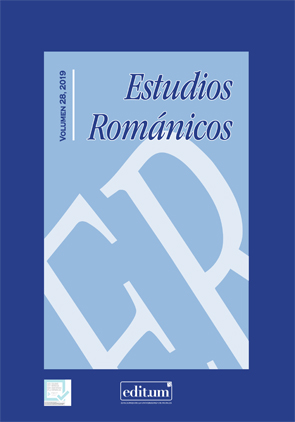Le insurrezioni popolari e la demistificazione di un ordine socio-politico alternativo in due romanzi
Abstract
Una lettura di Vedo il sole nei tuoi occhi Etoke e The Ashanti Doll Francis Bebey rivela che al di là dello stato dei romanzi aneddotici che li definiscono, è in profondità la postulazione di un cambiamento politico che mobilita il due romanzieri nella descrizione di una società corrotta. Ma qual è la genesi di questi movimenti popolari? Come e perché sono rappresentati letteralmente? Infine, come sono gestite le tensioni politiche dal potere locale e quali aspirazioni alimentano gli attori in "ordine di battaglia" nei romanzi decifrati? Per rispondere a questa domanda, usiamo il referebralista sociocritico teorizzato da Pierre Barbéris e Henri Mitterand. Su questa base, adottiamo un piano triadico. Per prima cosa esaminiamo la natura del male sociale per dimostrare che il romanzo non si limita a esprimere un significato già lì. Quindi, proviamo che, attraverso la scrittura, modifica il precedente equilibrio di significato per poter finalmente rifrangere e trasformare, allo stesso tempo, il discorso sociale per postulare la convivenza.
Downloads
-
Abstract909
-
PDF (Français )581
Riferimenti bibliografici
AYISSI, Lucien (2003) : « Gouvernance partagée et décentralisation ». Gouvernance partagée : la lutte contre la pauvreté et les exclusions. Yaoundé : CUP, 250-264.
BALANDIER, Georges (1970) : Sociologie des mutations. Paris : Anthropos.
BARBÉRIS, Pierre (1990) : « Sociocritique ». Introduction aux méthodes critiques pour l’analyse littéraire. Paris : Bordas, 121-153.
BARTHES, Roland (1970) : S/Z. Paris : Seuil.
BARTHES, Roland (1981) : Le Grain de voix. Paris : Seuil.
BEAUVOIR, Simone De (1949) : Le Deuxième sexe II. Paris : Gallimard.
BEBEY, Francis (1973) : La Poupée Ashanti. Yaoundé : CLÉ.
BEYALA, Calixthe (1995) : Lettre d’une Africaine à ses sœurs occidentales. Paris : Spengler.
CEFAÏ, Daniel (2007) : Pourquoi se mobilise-t-on ? Les théories de l’action collective. Paris : La Découverte.
DOUBROVSKY, Serges (1966) : Pourquoi la nouvelle critique ?. Paris : Mercure de France.
EDWARDS, Michael (2009): Civil Society. Cambridge: Polity Press.
ETOKE, Nathalie (2008) : Je vois du soleil dans tes yeux. Yaoundé : PUCAC.
GENETTE, Gérard (1979) : Introduction à l’architexte. Paris : Seuil.
GOLDMANN, Lucien (1964) : Pour une sociologie du roman. Paris : Gallimard.
LEJEUNE, Philippe (1980) : « Le récit d’enfance ironique : Vallès », Je est un autre. L’autobiographie de la littérature aux médias. Paris : Seuil, 24-25.
MITTERAND, Henri (1980) : Le Discours du roman. Paris : Seuil.
NGANANG, Patrice (2005) : Le Principe dissident. Yaoundé : Interlignes.
NJOH MOUELLE, Ebenezer (ed.) (1980) : Développer la richesse humaine. Yaoundé : CLÉ.
OLINGA, Alain Didier (2009) : « L’intelligence de l’inertie ». Patrimoine. Yaoundé : CLÉ : 10-11.
PICON, Gaëtan (1953) : L’écrivain et son ombre. Paris : Gallimard.
ROBRIEUX, Jean-Jacques (2000) : Rhétorique et argumentation. Paris : Nathan.
WELLEK, René; WARREN, Austin (1971) : La Théorie littéraire. Paris : Seuil.
Las obras que se publican en esta revista están sujetas a los siguientes términos:
1. El Servicio de Publicaciones de la Universidad de Murcia (la editorial) conserva los derechos patrimoniales (copyright) de las obras publicadas, y favorece y permite la reutilización de las mismas bajo la licencia de uso indicada en el punto 2.
2. Las obras se publican en la edición electrónica de la revista bajo una licencia Creative Commons Reconocimiento-NoComercial-SinObraDerivada 3.0 España (texto legal). Se pueden copiar, usar, difundir, transmitir y exponer públicamente, siempre que: i) se cite la autoría y la fuente original de su publicación (revista, editorial y URL de la obra); ii) no se usen para fines comerciales; iii) se mencione la existencia y especificaciones de esta licencia de uso.
3. Condiciones de auto-archivo. Se permite y se anima a los autores a difundir electrónicamente las versiones pre-print (versión antes de ser evaluada) y/o post-print (versión evaluada y aceptada para su publicación) de sus obras antes de su publicación, ya que favorece su circulación y difusión más temprana y con ello un posible aumento en su citación y alcance entre la comunidad académica. Color RoMEO: verde.












